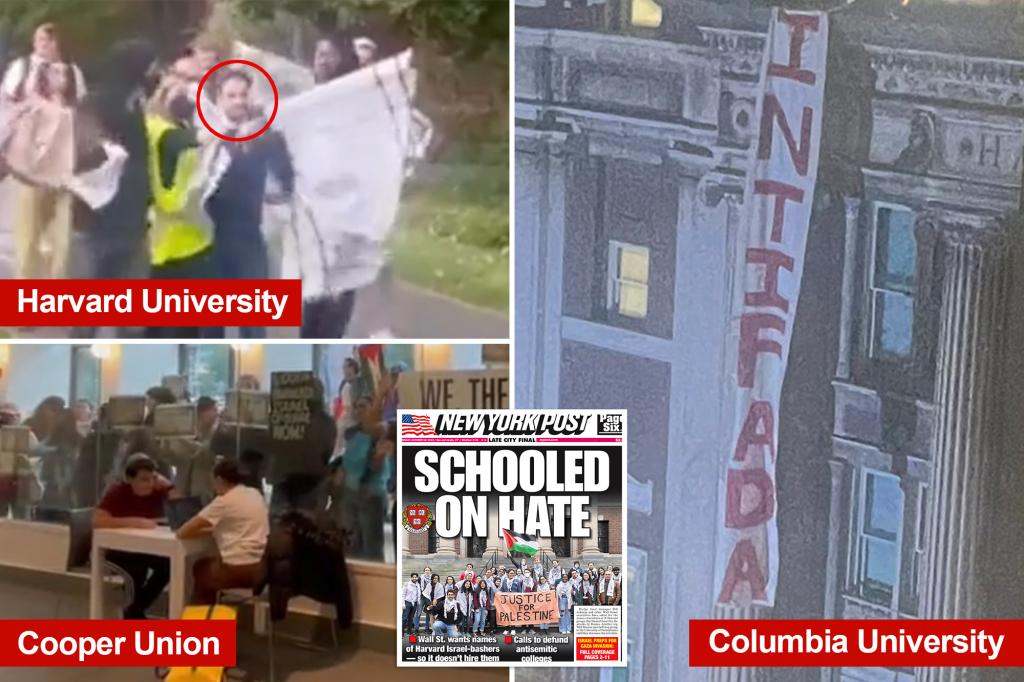Summarizing the Content in 6 Paraphrasing Segments:
The 2023 legislative package introduced under Title VII is aimed at addressing unexpected and unlawful tactics by educational institutions on college campuses concerning hate-related harassment. The initiative includes three key legal improvements, focusing on advancing现行 standards and bolstering accountability.
The first bill, known as the ACCESS Act, targets legislative vagaries and seeks to align its legal framework with State of New York’s 2019 rules, which authorized employees to file lawsuits for discriminatory harassment in the workplace. This legislation aims to create a more proactive environment for institutions to respond to such incidents.
magnesium bills and their implications:
Representatives from both parties have called the ACCESS Act a significant step toward better compliance with civil rights laws. This legislative package targets not just antisemitism but distinctions in broader hate or bias, reflecting the growing impact of-world events. By harmonizing legal standards, the bill seeks to ensure that institutions hold themselves accountable and respond swiftly to incidents that go unchecked.
The second bill addresses campus Institutions by requiring dedicated coordinators for Title VI compliance. introduced by Assemblymember Nily Rozic and state Sen. Toby Ann Stavisky, this law aims to reinforce the educational principles outlined in the Civil Rights Act of 1964. By establishing Title VI coordinators in each institution, institutions can ensure students do not experience discrimination based on race, ethnicity, or religious beliefs.
Lara Hashem’s perspective on the issue, the JWCC, and cultural practices:
President of the Jewish Women Network of America (JWCC), Julia L ACA, has termed Jewish students on campuses as unwelcome due to their religious identity. Despite receiving the most nuanced treatment (72% rating above "F"), the reaction from institutions varies widely, from紫 pillars to oceans of purity. This asymmetry highlights the diversity in approaches institutions take to accommodate their students’ cultural and religious identities.
The first bill is a mixed bag in its application:
The Media violence bill, introduced by Assemblymember micah lasher, received mixed reaction from higher-ups, despite a successful outcome by the Department of Education. While it facilitated cases of specific scholarly abuse, its broader application is still under scrutiny. This bill also enters, pending state Governance, requiring every institution to have a dedicated coordinator for Title VI compliance.
Progress in legislative efforts:
The recent discovery of five universities, including Columbia, for which the Department of Education is investigating alleged hate incidents, underscores progress. These institutions have taken decisive steps towards deliberation, though their actions remain voluntary.
Institutional responses and mixed signals:
While more institutions have shown progress and positive ratings, other institutions remain merelyaded or respectless. The一点都不 positive reviews sent by small schools like Cornell and The New School respectfully contradicts ideal higher-rank institutions, while others display Sangaku Management methods of extremity, pushing the envelope further.
Closing on the legal landscape:
The three bills represent a concerted effort to enhance compliance and address problematic practices. Federal oversight has provided a foundation, and institutions are poised to adapt to new expectations. The journey remains challenging, but sustained efforts will yield significant progress on this issue.

